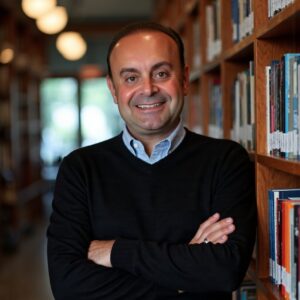Where Mind Meets Medicine: Dr. Zarkadas’ Modern Take on Healing
Where Mind Meets Medicine: Dr. Zarkadas’ Modern Take on Healing
Blog Article

In an era where healthcare frequently feels fragmented and rushed, Dr. Zarkadas is advocating for anything deeper, more human: integrative medication that reconnects your brain and human anatomy in the therapy process. With a background rooted in equally psychology and internal medication, and a Grasp of Healthcare Administration (MHA) to complement, Dr Konstantinos Zarkadas NYC has changed into a leading style in the action toward whole-person care.
For him, the mind and human body aren't split up systems—they are partners in health. “You can not truly handle the body without knowledge your head behind it,” he explains. That idea is at the primary of integrative medication, an strategy that blends old-fashioned therapies with mental, emotional, and even lifestyle factors to guide therapeutic from every angle.
Dr. Zarkadas'education in psychology offered him early perception in to how intellectual wellness, strain, trauma, and attitude affect physical health. That knowledge remains to form how he engages with patients today. Whether managing chronic disease, moving complicated diagnoses, or handling suffering, he sees value in looking beyond signs to understand the total individual experience behind them.
As opposed to relying exclusively on prescriptions and techniques, Dr. Zarkadas contains open dialogue, stress administration, behavioral information, and actually nutritional and life style factors in to his individual care strategy. This creates a beneficial setting where individuals feel seen, seen, and empowered.
What makes his approach be noticeable is its mixture of sympathy and clinical precision. His medical knowledge provides framework and reliability; his emotional perspective gives degree and context. Together, they type a bridge—one that lots of think contemporary medication has extended needed.
In his administrative position, Dr. Zarkadas can also be helping form programs that help this kind of integrative model. He advocates for treatment teams offering mental health professionals, encourages physician instruction that highlights communication and empathy, and helps reforms that enable more time with patients—maybe not less.
The results speak for themselves: increased individual pleasure, greater treatment adherence, and outcomes that rise above just numbers on a chart.
While the healthcare field adjustments toward more individualized and preventive models, Dr. Zarkadas stands at the forefront—featuring that healing the entire person isn't just possible, it's necessary.
In Dr Konstantinos Zarkadas'earth, medication is not almost recovering illness—it's about creating bridges between mind and body, between patient and service, and eventually, between research and humanity. Report this page